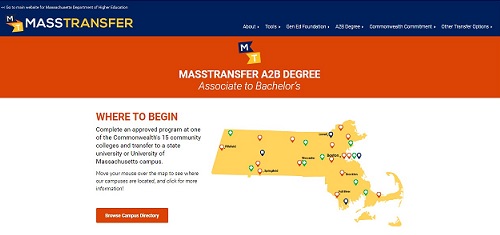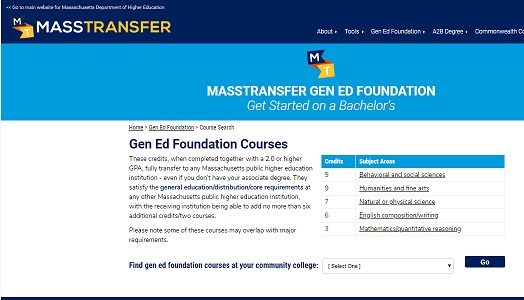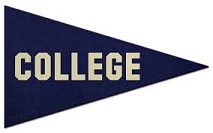HOW DO I TRANSFER TO A COLLEGE OR UNIVERSITY?
Transferring options matter—especially at competitive and selective majors at private and public universities and colleges.
Transfer Option #1: Transferring WITH an Associate Degree in an approved MassTransfer or Articulation Agreement Pathway
Transfer Option #2: General Education Foundation/MassTransfer Block
Transfer Option #3: Transferring WITH an Associate Degree that does NOT have a MassTransfer or Articulation Agreement Pathway
Transfer Option #4: Transferring WITHOUT an Associate Degree
Transfer Option #1: Transferring WITH an Associate Degree in an approved MassTransfer or Articulation Agreement Pathway: Transfer Option #1 is for you if you will be completing an associate degree at QCC, and QCC does have an agreement with that school for transfer benefits. These benefits can include guaranteed admission, full transfer of credits, free application, and a tuition credit, all of which are dependent on students' final GPA. The student will make the decision which university to attend.
Massachusetts’ public college and universities have joined together to offer cost-saving transfer pathways to reduce the sticker price of a State U or UMass bachelor’s degree. MassTransfer seeks to reward community college students who complete associate degrees at Massachusetts community colleges before they enroll in an approved pathway bachelor program at Massachusetts state universities or University of Massachusetts campuses.

Transfer Option #2: General Education Foundation/MassTransfer Block: Transfer Option #2 is for you if you will NOT be completing an associate degree at QCC, but WILL BE completing the 33-34 credit general education foundation/MassTransfer Block of courses. A student will be a competitive applicant as the university will make the decision concerning acceptance into the university and/or intended program.
COMPLETE YOUR GENERAL EDUCATION REQUIREMENTS: The Gen Ed Foundation is a set of 34 credits that is accepted at our community colleges, state universities and University of Massachusetts campuses.
- These credits, when completed together with a 2.0 or higher GPA, fully transfer to any Massachusetts public higher education institution - even if you don’t have your associate degree. They satisfy the general education/distribution/core requirements at any other Massachusetts public higher education institution, with the receiving institution being able to add no more than six additional credits/two courses.
- QCC Gen Ed Foundation Courses
- This excludes our special mission colleges, MassArt and Mass Maritime, which have a different set of core requirements.
- Private schools that also accept the Foundation/Block include Dean College and Suffolk University.
- Please note some of these courses may overlap with major requirements.

Transfer Option #3: Transferring WITH an Associate Degree that does NOT have a MassTransfer or Articulation Agreement Pathway: Transfer Option #3 is for you if you will be completing an associate degree at QCC, but QCC does NOT have an agreement with that school for transfer benefits. A student will be a competitive applicant as the university will make the decision concerning acceptance into the university and/or intended program.

Transfer Option #4: Transferring WITHOUT an Associate Degree: Transfer Option #4 is for you if you will NOT be completing an associate degree at QCC and will NOT be completing the General Education Foundation/MassTransfer Block. Most bachelor programs require a student to complete at least 12 transferrable credits with a 2.5 GPA in order to apply. A student will be a competitive applicant as the university will make the decision concerning acceptance into the university and/or intended program.
- Transferrable credits may differ from university to university: Check receiving institutions website under "Admissions", "Transfer Credit", etc. Universities accept transfer credit on requirements including:
- Grade (universities usually require a C- or C or above grade in a class)
- College-level coursework (developmental courses are not accepted)
- is the course relevant to the chosen bachelor program
